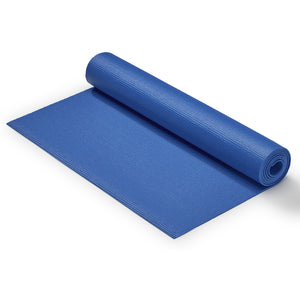We’re juggling jobs, relationships, errands, workouts, to-do lists, house cleaning, and a million other things. It’s easy to lose touch with what’s happening in the present moment when we’re constantly chasing the next urgent task.
Mindful May is an invitation into the present moment. For 31 days you will focus on pausing, breathing, and reconnecting.
What Is Mindful May?
Mindful May is a global movement encouraging people to embrace mindfulness as a lifestyle—not just something trendy or fleeting. It’s about showing up for yourself, tuning in rather than zoning out, and prioritizing your mental and physical wellness. Whether you’re brand new to mindfulness or a seasoned practitioner, May is the perfect time to recommit to being present in your body and intentional in your choices.
And the best part? You don’t need to retreat to a mountain cabin or attend a week-long silent meditation retreat to participate. With tools like the SunnyFit app, you can bring mindfulness into your daily life—right in the comfort of your living room.
Why Mindfulness Matters (and What Science Says About It)
Before we dive into workouts, let’s break down why mindfulness is worth your time.
Mental Health Benefits
Mindfulness meditation has been extensively studied for its positive effects on mental health. A meta-analysis published in JAMA Internal Medicine found that mindfulness meditation programs can lead to moderate improvements in anxiety, depression, and pain, comparable to what would be expected from the use of an antidepressant in a primary care population.[1]
Cognitive Enhancements
Beyond mood regulation, mindfulness practices have been linked to enhancements in cognitive function. A meta-analysis of 25 studies indicated that mindfulness-based interventions produce small but significant improvements in executive function, which includes skills like problem-solving, planning, and attention regulation.[2]
Another study in Frontiers in Human Neuroscience found that mindfulness improves cognitive function, attention, and working memory.[3]
Neuroscientific Findings
Neuroscientific research has provided insights into how mindfulness practices can lead to structural and functional changes in the brain. Regular mindfulness meditation has been associated with increased cortical thickness in areas related to attention and sensory processing, such as the prefrontal cortex and right anterior insula.[4]
Additionally, mindfulness practices have been shown to reduce the density of the amygdala, a brain region involved in processing fear and stress responses. This reduction may contribute to decreased stress and anxiety levels.[5]
Physical Health Improvements
Mindfulness doesn't just benefit the mind—it has tangible effects on physical health as well. A study published in PubMed found that mindfulness meditation significantly decreased blood pressure and heart rate in participants who practiced 30 minutes per day, four times per week, over the course of 12 weeks. These physiological changes are linked to a reduced risk of cardiovascular diseases.[6]
Other studies have found that mindfulness-based interventions have been effective in improving sleep quality. Research in JAMA Internal Medicine reported that participants in a mindfulness program experienced significant improvements in sleep quality compared to those in a sleep hygiene education program.[7]
In short, mindfulness helps you feel stronger, calmer, and more in tune with your body. That’s a win-win.
Move with Intention: SunnyFit’s Mindful May Workouts
The SunnyFit app has a curated lineup of wellness workouts designed to support your Mindful May journey. Whether you're easing into mobility or ready to level up your Pilates, these sessions combine movement and mindfulness to help you feel amazing—physically and mentally.
Here’s what’s waiting for you:
20-Min Beginner Mobility for Lower Body
Think of this as your daily tune-up. This mobility session is gentle, focused, and beginner-friendly, targeting stiff hips, hamstrings, and glutes. Perfect for anyone who spends long hours sitting or feels tight after high-intensity workouts.
Why it’s mindful: You’ll be encouraged to slow down, notice your range of motion, and breathe through each stretch—no rushing, just reconnection.
20-Min Beginner Senior Stretch with Towel and Chair
Mindfulness has no age limit, and this workout proves it. Designed with seniors (or anyone craving low-impact movement) in mind, this session uses a towel and chair to promote safe, supported stretching.
Why it’s mindful: Gentle cues guide you to stay present in each movement. It’s a self-care ritual that feels more like a gift than a workout.
20-Min Intermediate Strength and Flexibility Yoga
Looking to build strength while staying centered? This flow strikes the balance between movement and meditation. With poses that challenge your muscles and flexibility, it’s ideal for those ready to step up their practice.
Why it’s mindful: The flow emphasizes breath-led movement, encouraging you to sync body and mind in every transition.
25-Min Intermediate Yoga
This slightly longer session gives you time to go deeper—into your breath, into your body, and into your practice. Expect a balanced sequence of grounding poses, flowing movement, and feel-good stretches.
Why it’s mindful: The emphasis on posture awareness, balance, and intention makes this a moving meditation in the truest sense.
10-Min Lunch Break Pause Meditation
Don’t have time for a full workout? No problem. In just 10 minutes, this seated meditation helps you reset, refocus, and recharge—no yoga mat required.
Why it’s mindful: Short, simple, and science-backed. Just one mindful break like this can reduce stress hormones and improve productivity for the rest of your day.
10-Min Advanced Pilates
Yes, mindfulness can be fierce too. This short but powerful Pilates workout targets your core, posture, and breath control—all while keeping you grounded and focused.
Why it’s mindful: With complex movements that require full-body coordination, your mind has no choice but to stay present.
15-Min Intermediate Mobility Pilates
This fusion of mobility and Pilates is perfect for improving functional strength and graceful movement. Think of it as a full-body reset button.
Why it’s mindful: The flowing pace and breath-driven sequences help clear mental clutter and create body awareness that lingers long after the session ends.
Mindful May, Every Day
Mindfulness isn’t a one-and-done experience. It’s a practice—one that deepens with consistency, compassion, and curiosity. The SunnyFit app makes it easy to weave mindfulness into your daily life with accessible, expertly designed workouts that nurture both body and mind.
Whether you have 10 minutes or 30, whether you're just beginning or leveling up, there's a space for you in this movement.
This May, let’s move with purpose. Let’s stretch with intention. Let’s breathe deeply. Let’s be here—fully, joyfully, and unapologetically.
REFERENCES
1. Goyal M, Singh S, Sibinga EMS, et al. Meditation Programs for Psychological Stress and Well-being: A Systematic Review and Meta-analysis. JAMA Intern Med. 2014;174(3):357–368. doi:10.1001/jamainternmed.2013.13018.
2. Im, S., Stavas, J., Lee, J., Mir, Z., Hazlett-Stevens, H., & Caplovitz, G. (2021). Does mindfulness-based intervention improve cognitive function?: A meta-analysis of controlled studies. Clinical psychology review, 84, 101972. https://doi.org/10.1016/j.cpr.2021.101972.
3. Parkinson, T. D., Kornelsen, J., & Smith, S. D. (2019). Trait mindfulness and functional connectivity in cognitive and attentional resting state networks. Frontiers in Human Neuroscience, 13. https://doi.org/10.3389/fnhum.2019.00112.
4. Reference: Lazar, S. W., Kerr, C. E., Wasserman, R. H., Gray, J. R., Greve, D. N., Treadway, M. T., ... & Fischl, B. (2005). Meditation experience is associated with increased cortical thickness. NeuroReport, 16(17), 1893–1897. https://doi.org/10.1097/01.wnr.0000186598.66243.19.
5. Ahmad, S. (2019, July 17). Meditation and mental health. Psychology Today. https://www.psychologytoday.com/us/blog/balanced/201907/meditation-and-mental-health.
6. Bell T. P. (2015). Meditative Practice Cultivates Mindfulness and Reduces Anxiety, Depression, Blood Pressure, and Heart Rate in a Diverse Sample. Journal of cognitive psychotherapy, 29(4), 343–355. https://doi.org/10.1891/0889-8391.29.4.343.
7. Irwin, M., Breen, E., Olmstead, R., O’Reilly, G., & Black, D. (2015). Mindfulness Meditation and Improvement in Sleep Quality and Daytime Impairment Among Older Adults With Sleep Disturbances: A Randomized Clinical Trial. JAMA Internal Medicine, 175(4), 494–501. https://doi.org/10.1001/jamainternmed.2014.8081.

































Add Your Name & Email
Please enter your name and email to continue.We won’t display your email publicly.